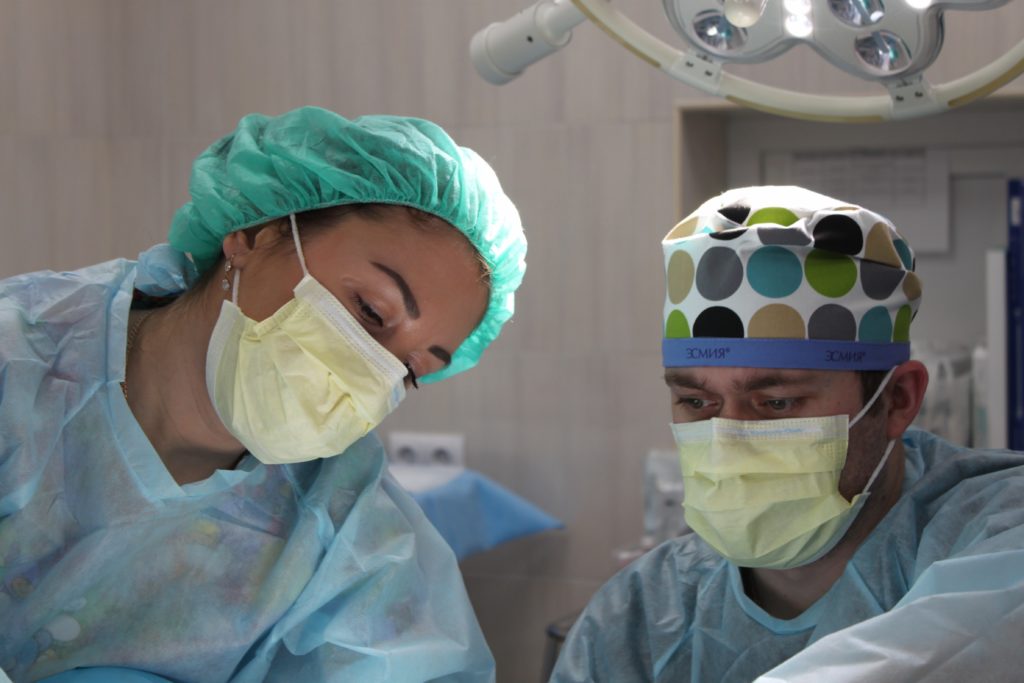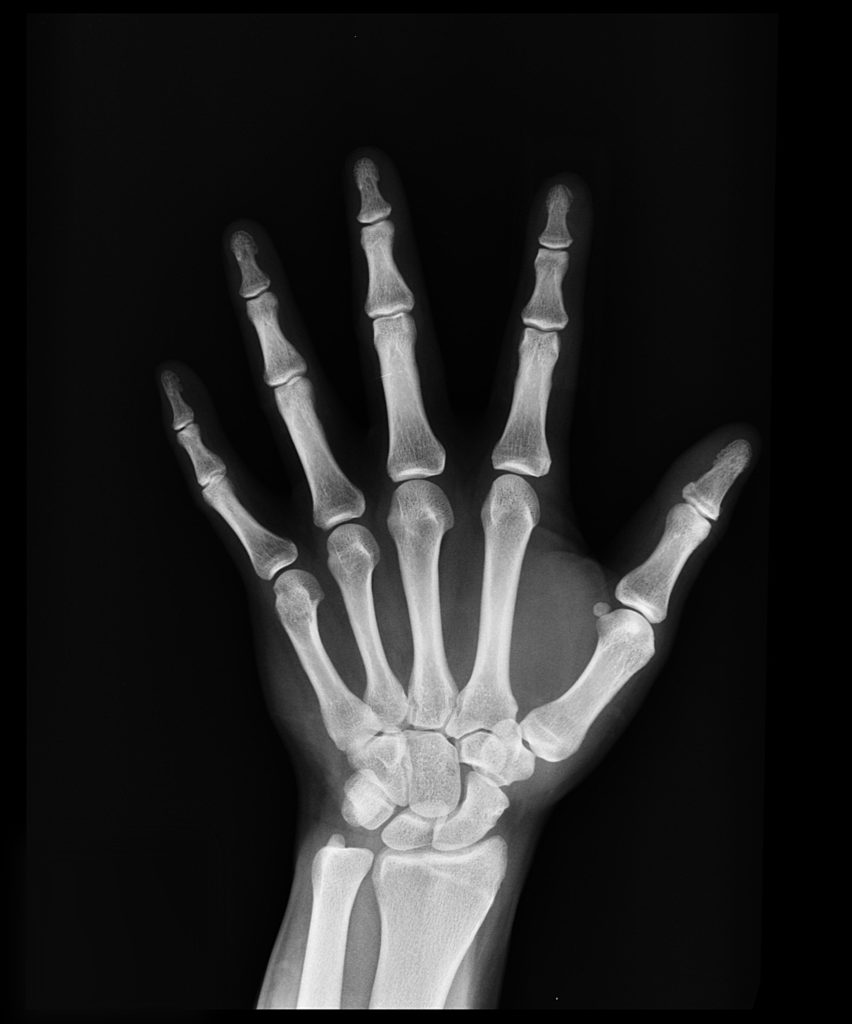Whilst Biomedical Science might seem like a useful degree to have, its lack of vocational specificity means you might end up graduating with essentially a glorified high school biology education.
This is not to say it is entirely meaningless, as when combined with the right master’s program, you can further your knowledge and land yourself a pretty good job.
Biomedical science probably isn’t for you if:
- You are not planning on studying medicine postgrad
- You don’t want to Become a Physician Associate
- You don’t want to continue into a master’s or PhD (working as a researcher)
- You don’t want to gain accreditation and work as a Biomedical Scientist
Otherwise, biomedical Science could benefit you after all!
But alone as a degree, don’t expect to be raking in 6 figures any time soon! here are 5 Biomedical Science Alternatives in 2020: The Complete Guide!

Biomedical Engineering (BEng 3 years)
Entry requirements: AAB-BBB | IB 32 points| 2 Science and Maths subjects
Average University Applicants Per Place: For Every 6 Applicants 1 Place Available
Entry Salary: £24,000 – £29,000
Possible Jobs: Biomedical Engineer, Engineer
What is biomedical engineering?
Biomedical engineering describes the intersection of biology, engineering, and medicine.
It is a major branch of STEM concerned with providing things like new synthetic drugs, technologically advanced prosthetics, and artificial organs.
A biomedical Engineer is first and foremost an engineer, who is also competent in biomaterials, cellular and genetic engineering, and computational biology.
This is a wide array of skills which will require hard work and dedication, as well as some level of natural talent to excel in such a broad field.
What are the entry requirements to biomedical engineering?
The standard entry requirements for biomedical engineering are AAB-BBB for A-levels.
This is however highly variable depending on the university but typically, if you have A’s and B’s in science and maths, you can easily find a place somewhere in the country.
For international students, the minimum academic requirements demand 32 points on the international baccalaureate, including three HL subjects at 6,5, 5.
This must include both maths and physics.
What sort of student excels at biomedical engineering?
Students with natural talents for maths and physics are usually the type to excel at biomedical engineering.
This degree is however not limited to such students as there is a large biological component associated.
If you enjoyed learning about human anatomy, cellular respiration, genetics, and cell biology, you are already half way there!
You must be at the very least competent at mathematics, and be open to learning plenty of mechanics and algebra to excel in this field.
Once you get to grips with the core engineering material, your learning will become slightly less maths and engineering oriented, and more application intensive.
How hard is biomedical engineering?
Combining 2 difficult fields isn’t going to create an easier subject. Biomedical engineering is definitely challenging, but so are most university courses.
The reason it may be hard for many students is that biology and engineering are quite different fields, and require a different set of skills to master.
A good biology student understands the importance of using resources and textbooks, loaded with information, to commit vast amounts of biology to memory.
A good engineering students however understands the importance of first learning how things work on a fundamental level.
They can then apply this knowledge to create more complex mechanical structures, based on mathematical models and careful planning.
Should I study biomedical engineering?
Obviously, you must make this decision on your own.
If your heart is with engineering, and you have always wanted to work in the medical field designing prosthetics and robots, you should do some more research into biomedical engineering.
What are the Job prospects of a biomedical engineer?
There is a global shortage of engineers generally, but this is even more notable in biomedical engineering.
These posts are often filled with under-qualified employees which just serves to reduce the advancement of medical technology.
In the US alone, vacancies have gone up almost 80%, and well over 12,000 new jobs need to be filled.
This worldwide shortage means after you qualify, you can literally find work anywhere you choose!
How to get a job as a biomedical engineer?
As long as you have a good bachelor’s degree in Biomedical Engineering, you can begin working as a biomedical engineer.
Any further postgraduate study will just make you stand out even more, and hopefully make your job search far easier.

Genetics (BSc 3 Years)
Entry requirements: AAB-ABB | IB 33-36 points| 2 Science and Maths subjects
Average University Applicants Per Place: For Every 7 Applicants 1 Place Available
Entry Salary: £18,000 – £26,000
Possible Jobs: Genetics researcher, Academic, Plant Geneticist
What is genetics?
Genetics is the study of the blueprints of life itself. it includes branches such as genomics, genetic engineering, evolutionary biology, genetic variation and plant genetics.
As someone previously interested in studying biomedical science, you are likely to be drawn to molecular, and medical genetics.
These branches concern themselves with determining the structure and functions of genes in the body, and managing disorders that may arise as a result.
This may lead you down the path of genetic engineering which is a highly sought after specialism, reserved for candidates with the right educational background.
What are the entry requirements to study genetics?
Typical offers to study genetics include AAB – ABB at A-Level.
The A-Level must be achieved in at least 2 hard sciences, namely, biology, chemistry, physics and maths.
Chances are if you are considering genetics, you will have at least 2 of these sciences under your belt!
36-33 points overall with a 6,6,6 to 6,6,5 is required for students taking the international baccalaureate examinations.
These exams must also include 2 science subjects such as biology or chemistry.
As usual, English language requirements must be met for all students who wish to study at English universities.
These include IELTS scores of 6.5 and above, GCSE/iGCSE English language at grade C or above, or any other acceptable qualification that demonstrate your command of the English language.
What sort of student excels at genetics?
Students who excel at genetics are generally students who excel in biology and chemistry in high school.
Much of the university material taught in an undergraduate genetics course stems from basics that you may have already learnt in school.
These include the antiparallel, double-helical nature of DNA, it’s ability to form a range of different bond types, and the synthesis of protein through cellular machinery etc.
A genetics degree simply builds upon these fundamentals, and introduces you to new aspects of genetics such as:
- Genetic engineering
- RNA interference
- Genomics
- Epigenetic
The reason why this degree is very important is, the field of genetics is so broad, but there are still new things being discovered on a regular basis.
To study genetics is to position yourself in a situation where you can contribute to new revolutionary discoveries.
How hard is genetics?
Genetics is a tough course and is purely academics and research based.
This means you won’t necessarily be training for a vocation per se, but you will be training more for the specialist knowledge which will be accrued and fortified slowly, over several years.
Gaining a Doctor of Philosophy in genetics can be done before you turn 25, and should be one of your goals to greatly increase your job prospects.
Should I study genetics?
If you enjoyed biology and chemistry at school, and found the difficult content easy, I strongly urge you to consider studying genetics.
It is an extremely rewarding subject to study, and whilst you will be hard pressed for a job (with only an undergraduate degree) your specialist knowledge in genetics and genetic engineering will be plenty more valuable than any non-specific teaching a biomedical science graduate will get.
What are the Job prospects of a geneticist?
If you are serious about being employed as a geneticist, expect to remain in university for a while as the only way to make yourself stand out would be to get a PhD in genetics.
This isn’t the fault of the job market; most jobs in genetics are either linked to being an academic lecturer or working in research.
Plenty of academic institutions including the one you studied at look for newly minted PhD’s to take on teaching and research related duties in their department.
There is always a vacancy that needs to be filled in a university, however the number of people vying for the position outweighs the number of spots there are.
This is why one must stand out with a doctorate qualification to at least give yourself a fighting chance at employment.
You may also consider genetic counselling if the academic route doesn’t suit you.
For this role, you may only need your undergraduate genetics degree in order to apply for an accredited training program.
How to get a job as a geneticist?
Genetic counsellor
Genetic counselling is simply informing and talking through genetic conditions that may be present in an individual’s family.
Advice can range from making the decision to take a genetic test, or providing support linking up patients with various support groups.
The key to become a genetic counsellor is using your undergraduate degree to complete an accredited master’s program in Genetics and Genomic counselling.
This course can be studied at Cardiff university and the University of Glasgow.
The course is designed to last 2 years, and help develop your problem solving and interpretation skills when counselling and communicating with patients.
A two-month placement at various genetics centres, spread over the duration of the course is usually provided as part of the degree accreditation.
Academic lecturer and Researcher
To be an academic, you must complete your undergraduate studies first, and continue this route to complete a master’s and a PhD.
During your studies you may pick up supervision roles for new undergraduate students, and work your way up the faculty ladder.
You may start by becoming a lecturing assistant to your PhD supervisor, and slowly take up more responsibilities in your faculty towards the end of your postgraduate program.
Plant Breeder
Becoming a plant breeder is a small market but may be of interest to the select few. Plant breeding companies are few and far between, and usually don’t advertise openings for aspiring breeders. There however may be a few vacancies for laboratory scientists to help in seed production during the summer when they are busiest.

Nursing (BSc 3 years)
Entry requirements: BBC | IB 25 points|
Average University Applicants Per Place: For Every 1 Applicant 1 Place Available
Entry Salary: £20,000 – £26,000
Possible Jobs: Nurse
What is nursing?
Nursing is a vocational degree that leads you straight into a job role as a nurse.
A nurse is a registered healthcare professional, tasked with providing care to individuals of all ages to promote health and prevent sickness.
In nursing school you will begin by learning the general biology required to develop good nursing practices.
This will involve learning about anatomy and physiology, and how you may apply this knowledge to provide nursing interventions.
You will also learn about the ethics that underpins the profession, and the legal principles you are required to follow if you end up working as a nurse.
What are the entry requirements to study nursing?
Nursing is a highly sought-after degree but since there is a nursing shortage, entry requirements are not necessarily very competitive.
Many universities will accept students with GCSE’s grade C or above, subject to completion of an access course.
You may also gain admission with A-Levels totalling 112 UCAS point. 112 UCAS points can be reached by completing 2 A-levels with a grade of A* each, or the more achievable, 3 A-levels with a BBC grade.
For international baccalaureate students, you can expect to gain entry to nursing schools having achieved a minimum 25 points.
If English isn’t your first language, be prepared to prove your language competency through tests such as the IELTS and the trinity College English exam.
What sort of student excels at nursing?
Students who have the ability to be critical thinkers whilst still maintaining compassion for their patients are usually the ones to make good nurses.
Nurses must think on their feet; they are often the first point of contact a patient may have to a healthcare professional.
As such their problem-solving skills and attention to detail are important in maintaining good standards of care.
Students with a natural communication style will also excel at nursing as being able to communicate effectively with patients and other healthcare professionals is key in the medical field.
How hard is nursing?
Most of the difficulty in studying nursing comes from the fact that the subject is a science, and therefore requires a lot of theoretical knowledge.
Since the first year is likely to be the most science and theory intensive year, plenty will drop out of the course due to inability to score well on theory and recall-based exams.
Should I study nursing?
A lot of people study nursing later in life as a change of career, or to refresh their knowledge if they haven’t practiced in a while, or have practiced in a different country.
If, however you are a young individual with the compassion to look after the sick, nursing might be for you.
You may hear of the hardship’s nurses face at work, but doing your part to nurse someone back to health is rewarding, and far outweighs any hardships you may face on the job.
What are the Job prospects of a nurse?
Currently there is a shortage of nurses globally.
In America alone, it is projected that they will need an additional 11 million nurses just to address their shortage problems.
Combined with the fact that many mature students study nursing and therefore will retire a lot sooner than the average undergraduate, the shortage is turning into a real problem.
The competition for jobs is therefore lower for nurses so expect to bag a job as soon as you become registered.
How to get a job as a nurse?
After completing your nursing program (likely a 3-year nursing degree), you must then register with the nursing & midwifery Council (NMC).
When choosing your degree, you can choose a nursing specialism out of a possible 4:
- Adult
- Child
- Mental health
- Learning disability
Starting from august 2020, there is a £5000 yearly bursary available to all nursing students.
If you are studying a challenging discipline such mental health nursing, you are eligible for an additional £3000 per year.
This is on top of the loan you can get from Student Loan Company, however you don’t have to pay the bursaries back, as these are grants.
These incentives are new and are placed on many professional healthcare degrees to attract candidates in the goals of building a stronger healthcare workforce.

Audiology (BSc 3 years)
Entry requirements: BBB | IB 34 points| Evidence of Science education
Average University Applicants Per Place: For Every 10 Applicants 1 Place Available
Entry Salary: £22,000 – £29,000
Possible Jobs: Audiologist
What is audiology?
Audiology is another vocational degree that sets you up for a profession as an audiologist.
Audiologist’s are registered healthcare professionals that diagnose and treat hearing loss and balance disorders.
They are not M.D.s as in doctors of medicine, rather they are trained specifically to treat hearing loss and hearing protection issues.
This may include assessing a patient’s hearing and identifying any related disorders, then providing rehabilitative strategies to combat and limit any further damage to a patient’s hearing.
What are the entry requirements to study audiology?
A BSc in audiology can be obtained via Healthcare Science Degree which is specialised in Audiology.
A typical degree offer will require BBB from candidates at A-Level, which must include specific subjects such as biology or applied science.
For international students, a typical international Baccalaureate offer must be met at 34 overall points with 6, 5, 5 at higher level.
This also must include a higher subject in science such as biology, chemistry, physics or maths.
The ratio of applicants to the number of places roughly sits at 1:10.
This means for every 1 place, any given person will compete with 9 other people for the spot, making it pretty competitive.
What sort of student excels at audiology?
Audiology is ideal for students with a strong biology background. An A-Level biology student will walk through an audiology degree with no issues.
How hard is audiology?
Audiology isn’t considered a particularly challenging course provided you stay on top of your reading and coursework material.
The aspect of the course most people will find most difficult is committing vast amounts of core biological content to memory, and applying this knowledge to various healthcare scenarios.
To get a head start and familiarise yourself with the content you may study, it may be worth reading up on the anatomy and physiology of the ear and surrounding structures.
Students may also struggle with the physics content associated with the course, however the material is unlikely to be something you haven’t already covered to some degree in high school.
Should I study audiology?
Hearing loss affects millions of people globally.
With an increase in devices that promote hearing loss, and the fact that the general population is living far longer, there may not be a better time to study audiology than now.
If you have competent scientific skills and are confident in your ability to grasp the mechanisms of hearing loss, and the combative therapeutic strategies associated, you should consider a career in audiology.
Even if you don’t want to work for the NHS, your skills and knowledge will certainly be of value all around the globe!
What are the Job prospects of an audiologist?
Job prospects for audiologists are great!
Newly qualified NHS audiologists can expect to earn £20,000 + a year.
Hearing loss is projected to affect 10 million people in the UK, and with an ageing population, audiology services are in greater demand across the UK.
How to get a job as an audiologist?
After spending an extra year gaining a master’s degree, you can then apply to complete the NHS scientist training program (STP) to become a registered audiologist.
The program is designed to give you skills to work in a senior healthcare science role.
Recruitment for this program is done once a year so don’t miss the deadline for entry in the subsequent year.
With your academic background and master’s degree, you are put in good stead to find a job after you complete your scientist training program.

Radiographer (BSc 3 years)
Entry requirements: ABB-BBB | IB 32 points|2 Science Subjects
Average University Applicants Per Place: For Every 3 Applicants 1 Place Available
Entry Salary: £20,000 – £25,000
Possible Jobs: Radiographer
What is radiography?
Radiography is the science of using ionising radiation to perform scans of internal structures in the body for diagnostic and analytical purposes.
In a hospital setting a radiographer is trained to perform a range of imaging test. These include X-rays, MRI, or CT scans.
A sonographer is a radiographer who has been trained to perform ultrasounds.
Many radiographers are also becoming trained to give radiotherapy treatment to patients suffering from cancer.
A radiographer shouldn’t be mistaken for a radiologist since a radiologist is a qualified medical doctor who is uniquely trained to interpret scans that a radiographer may take.
What are the entry requirements to study radiography?
To study a BSc in radiography, a typical successful A-Level applicant may look to achieve ABB-BBB.
They must also have at least one science A-Level under their belt such as biology, chemistry or Applied Sciences.
An international baccalaureate student should be looking to achieve 34 points overall with 3 higher level subjects at a minimum of grade 5.
What sort of student excels at radiography?
If chemistry was your subject back in school, you will easily understand the theoretical concepts taught in a radiography course.
This will mostly be the physics and chemistry of the instruments used for imaging, and how they interact with the biology of human tissue.
Most radiography courses however have a strong practical component so you must be good at interpreting information from pictures and remembering how structures look on different imaging techniques.
How hard is radiography?
Most radiography courses are 50% theory and 50% practical to properly prepare students for this vocation.
This means as a student, you will have a very diverse timetable. One day you may be learning about electron energy levels and magnetic fields, and the next you may be learning about densities of different biological tissue.
The difficulty in this course comes from the fact that all the major sciences meet at crossroads to form the underlying concepts of radiography.
If you are usually good with theory and content recall, you may struggle with the practical aspects of the course such as developing good bedside manner, and diagnosing an illness based on various test results.
Usually the students who only focus on the practical aspect, or the theoretical aspect as opposed to both, struggle the most.
Should I study radiography?
Radiography is another vocational degree that will get you a job, or at least give you the skills to be professionally competent in a job role.
Radiography positions you for a role working in a hospital and may be the course for you if you want to work in healthcare and avoid unemployment.
You will also likely graduate with far less debt than the average student due to all the incentives, grants and bursaries attached with this allied health course.
This includes a £5000 NHS bursary for living costs, and an additional £3000 if you have children or are studying in a field that is struggling to recruit.
What are the Job prospects of a radiographer?
There seems to be a downward trend of people enrolling on radiography courses, therefore diagnostic and therapeutic radiographers are still very much in demand.
According to a report carried out by the society & college of radiographers (SoR), a 9% vacancy rate may exist in the profession.
In the past, the majority of diagnostic and therapeutic radiographers had secured jobs in the same year of graduation, earning between £20,000 and £27,000 a year.
It is hard to say for sure how easy it will be to find a job in the current market.
Radiography positions can be competitive, but radiography is a real career with real job prospects that you may wish to explore.
How to get a job as a radiographer?
To become a qualified radiographer, you must complete your diagnostic radiography degree (approved by the HCPC).
This will allow you to apply for registration as a qualified radiographer.
No further master’s degree is required with a relevant diagnostic radiography BSc as it stands.
There is however no harm in putting yourself above the competition and positioning yourself for a role as a senior diagnostic radiographer with further study.
Summary
While biomedical science may look like a good degree on paper, it doesn’t offer you any solid specific knowledge that you couldn’t get elsewhere.
In fact, studying another degree that is more specific such as genetics will offer you far better knowledge not to mention job prospects, even though biomedical science covers genetics as part of the curriculum.
Biomedical science offers students modules in biochemistry, haematology, pathology, and genetics, but since the curriculum is so general, there is nothing to prove that you have any expertise in anything.
This is why there is a plethora of better options to choose from, a few of which I have outlined in this article.
Use this as a guide to inform you decisions and always aim higher!
If you are still unsure about which courses to study, consider checking out my short course where I walk you through several life sciences courses and which ones to study in the future!

![[MacOS Error] – Compressor does not support running in a macos virtual machine](https://cdn-0.ghoopi.com/wp-content/uploads/2023/09/img_6688-150x150.jpg)










